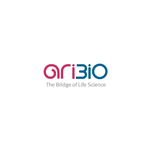SEONGNAM, South Korea–(BUSINESS WIRE)–#AR1001–A recently published research article in Nature Aging by a Cleveland Clinic Genomic Medicine Institute (GMI) research team, led by Feixiong Cheng, Ph.D., entitled “Endophenotype-based in silico network medicine discovery combined with insurance record data mining identifies sildenafil as a candidate drug for Alzheimer�s disease� showed the potential of PDE5 Inhibitors in Alzheimer�s Disease (AD). The research finding confirms more than 10 years of pioneering research conducted by AriBio Co., Ltd., a Korean biotech company that began its development of an AD drug with its patent of “Composition for Inhibiting Neurocellular Apoptosis Composition for a PDE5 Inhibitor.”
The Cleveland Clinic�s GMI�s non-clinical, computational research follows the recent announcement of results for AriBio�s patented drug, AR1001, an oral disease modifying agent, that successfully reported positive and very promising Phase II trial results at the 14th Annual Clinical Trials in Alzheimer’s Disease Conference (CTAD) held in Boston, USA in November 2021. Unlike FDA approved symptom relief therapies, the results confirmed the possibility of developing a unique oral disease modifying treatment for AD that improves cognitive function as a primary treatment to replace current therapy. Additionally, AR 1001 has demonstrated an excellent safety profile in long-term use.
The Cleveland Clinic GMI study analyzed large, publicly available insurance record datasets utilizing computational methodology to screen and validate FDA-approved drugs as potential therapies for Alzheimer�s disease (AD). The large database of claims data that analyzed more than 7 million people, spanning a 6-year period in the U.S. examined the relationship between a PDE5 drug (sildenafil) and AD risk reduction. The sildenafil users had a 69% reduced risk of developing AD dementia, as the compound appeared to increase neurite growth and decrease phospho-tau expression in AD neurons models.
Matthew Choung, CEO of AriBio Co., Ltd., said, “Since 2010, we have conducted research demonstrating PDE5 inhibitors are effective in brain diseases such as dementia and subsequently have developed AR1001 for Alzheimer’s Disease. During development, a novel, poly-pharmacological mechanism of action for AR1001 was discovered. It is important to note that AR1001 has a number of comparative advantages, perhaps most importantly, the fact that the drug has 10 times higher PDE5 inhibition capacity and competitive advantages in mode of action than sildenafil. The AriBio team has strong faith in the potential success of our R&D Alzheimer’s dementia treatment AR1001 which is all well protected with patents.�
Choung continued by saying that, �Clearly, other AD-related research groups are independently confirming our recent clinical results as highlighted by the Cleveland study utilizing computer modeling and insurance data. Our commitment to being not just the first in class, but also the best in class and obtain regulatory approval is well advanced following the completion of the Phase 2 study and planned Phase 3 study in 2022. This places us at a significant advantage over other PDE5 inhibitors which may be in development.�
“Given the importance of our findings and as the only PDE5 to demonstrate success in AD, we will be collaborating globally to bring this potential oral breakthrough to the global market,” Choung said. “We are excited to meet with the U.S. Food and Drug Administration (FDA) and start phase 3 clinical trials in the first quarter of next year.” AriBio will lead the AR1001 phase 3 clinical trial, but the Korean biotech company is also actively considering joint development with global pharmaceutical companies to deliver hopeful news as soon as possible to patients and their families suffering from Alzheimer�s Disease worldwide.
If AriBio completes Phase III clinical trials of AR1001 within the next 3-4 years, and obtains U.S. FDA approval, the company expects to lead the global dementia treatment market and occupy an exclusive position to help patients and their families with this revolutionary oral therapy.
About AR1001
AR1001 is a first-in-class oral drug with novel polypharmacological mechanisms for the treatment of Alzheimer�s disease. Pre-clinical studies have confirmed neuroprotective effects of AR1001 via inhibiting neuron apoptosis and restoring synaptic plasticity. AR1001 also has demonstrated notable effects against amyloid plaques and tau proteins via autophagy activation. The results of a Double-Blind, Randomized and Placebo-Controlled Study to Evaluate Efficacy and Safety of 52-Week Treatment in Patients with Mild to Moderate Alzheimer’s disease was reported at 14th Conference of Clinical Trials on Alzheimer�s Disease (CTAD) that was held in Boston, USA, from November 9-12, 2021. The study confirmed the safety and efficacy of AR1001 in slowing the progression of Alzheimer’s disease through various cognitive and functional assessments.
About AriBio Co., Ltd. (www.aribio.com)
AriBio Co., Ltd. is a biopharmaceutical company based in South Korea with a focus on the development of new drugs for neurodegenerative disease. AR1001 is the lead candidate for Alzheimer’s disease, which is scheduled to enter a multinational Phase 3 study in the United States, Europe, United Kingdom and Korea in 2022.? AriBio also has several other PDE5 inhibitors in development for a variety of disease with a dementia component and they continue to investigate combination drugs to further enhance efficacy.
Contacts
Richard Minoff, +1.215.480.4537 [email protected]
Jae-young Ha, +82-10-2990-5870 [email protected]







